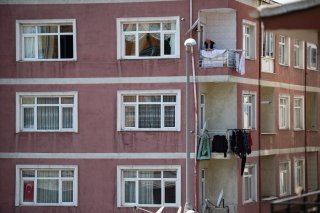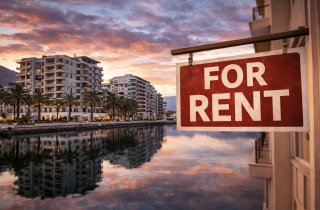Property Transactions on the Spanish Coast Expected to Decline by 6%

The American real estate agency network Keller Williams forecasts a 6% decline in property sales on the Spanish coast due to the latest government initiatives. Analysts also warn of an upcoming price drop and a potential loss of investment appeal, as reported by Idealista.
Government Measures Affecting Foreign Buyers
Spanish Prime Minister Pedro Sánchez has proposed banning non-EU citizens who are not Spanish residents from purchasing property. In 2023, third-country nationals acquired 27,000 properties, with most purchases made for investment rather than residence. According to Sánchez, this exacerbates housing market pressures, making homes less accessible.
In January 2025, the Prime Minister announced plans to introduce a higher tax on foreign property purchases within this category. The details of the taxation mechanism are yet to be defined, but the proposed rate could reach 100%, similar to Denmark and Canada, where such measures have curbed speculative demand and stabilized real estate markets.
Another major change involves the closure of the "Golden Visa" program, which grants residency permits to non-EU investors purchasing properties worth €500,000 or more. This program has been popular among wealthy third-country citizens but is criticized for driving up property prices and fueling speculation. The Spanish Congress approved its termination in December 2024, and the official decree was published in the Boletín Oficial del Estado (BOE). Investors have until April 3, 2025, to apply.
Impact on the Mediterranean Coast and Foreign Demand
Keller Williams expects Sánchez’s proposal to mainly affect properties along the Mediterranean coast, particularly in the Balearic Islands, Valencia, Catalonia, and Costa del Sol. Despite these upcoming restrictions, foreign demand for Spanish real estate grew by 30.7% compared to 2019, with a 7% increase in international sales in 2024.
However, analysts argue that these restrictions may have a limited impact on solving Spain’s housing affordability issues. Foreign buyers mainly target luxury properties, which do not directly compete with affordable housing.
"The Spanish real estate market has become a magnet for international investors, drawn by its unique mix of profitability, climate, cuisine, and quality of life,"
– Leonardo Cromstedt, President of Keller Williams Spain
New restrictions, higher taxes, and the end of the Golden Visa program may reduce demand for premium properties. Stricter regulations could also harm Spain's investment appeal, particularly among foreign investors who view real estate as an asset class.
Spain’s Competitiveness in the European Real Estate Market
Experts warn that these policies may weaken Spain’s competitiveness in the European property market, especially compared to Portugal and Greece. Currently, Spain still outperforms these countries in terms of rental returns.
As of February 2025, according to Global Property Guide, average rental yields for 1-3 bedroom properties are:
Madrid – 5.49%
Athens – 4.99%
Lisbon – 4.45%
Numbeo estimates Spain's overall rental yields between 3.4% and 6.1%, with Madrid and Barcelona offering 4% to 6%, depending on property size and location.
The long-term impact on the Spanish property market remains uncertain and will depend on how effectively the government can offset the decline in foreign demand by boosting domestic real estate activity.











